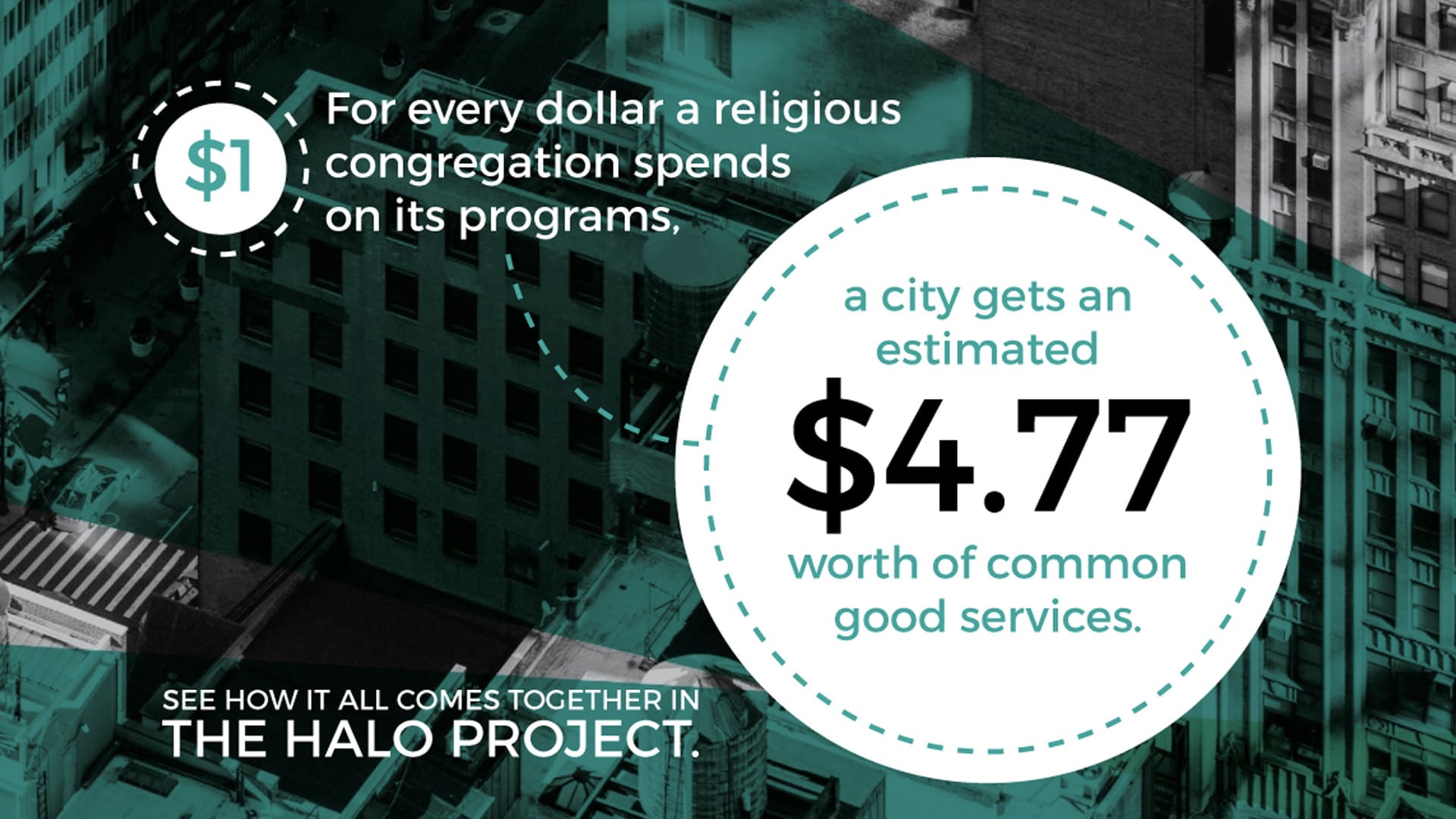“Why should I give to the church?” This is a complex question. What is actually meant by the question depends on who is doing the asking. Sometimes the question is actually “Why should I give any of my money away?” or “Why should I give 10% to a church?” and often, “Why should I give to the church when I could give to a non-profit?” The latter implying that the church does not impact the common good of cities or the world in the same way as other organizations and their efforts. But is it true?
Why is the church important?
Let’s start with another question, “Why is the church important?”
Michael Ramsey, a former Archbishop of Canterbury, had a robust and beautiful theology of the church. Here’s a snippet: “From the Church therefore the Christian never escapes; it is a part of his own existence since it is a part of Christ himself. And without the Church the Christian does not grow, since the Christ is fulfilled in the totality of all His members.”
With similar sentiments in mind, a well-known pastor has famously said, “The local church is the hope of the world.” This is beyond an audacious claim. Some might even say it’s ridiculous. But if it’s true, why wouldn’t we invest into the hope of the world?
Bringing these thoughts together, “The local church is the unique place where individuals can encounter Jesus himself and are formed into his likeness,” and together they become the hope of the world as they embody his presence for the sake of the world.
It’s understandable that church leaders believe in the importance of the church. However, wouldn’t they have a vested interest in the church’s financial success? Their livelihoods depend upon it. Shouldn’t this cast at least some suspicion on their intentions?
We don’t have to try hard to find stories of scandal, financial mismanagement within churches, and some pastors even leveraging congregational generosity for their own gain and self-interest.
Let’s turn to another pastor then, St. Paul, who chose to fund ministry primarily from his own work outside of the local church (1 Corinthians 9:3-12). How would Paul answer the question, “Why is the church important?”
We find Paul’s explicit answer in his letter to the Ephesians. What Paul has to say is likely where Ramsey and Hybels find their own understandings of the church. Paul writes, “Blessed be the God and Father of our Lord Jesus Christ, who has blessed us in Christ with every spiritual blessing in the heavenly places, even as he chose us in him before the foundation of the world, that we should be holy and blameless before him. In love he predestined us for adoption to himself as sons through Jesus Christ, according to the purpose of his will, to the praise of his glorious grace, with which he has blessed us in the Beloved.” (Ephesians 1:3-6).
What does this have do with the church, after all the word ‘church’ is nowhere to be found? Let’s put aside our individualistic lenses for a moment. Take note of the plurality of this passage: it’s all about us. Who is the “us”? The church. What do we learn about the church then?
‘Creation exists to realize the church.’ This is a countercultural claim, but one made unabashedly by Scripture
God chose the church before the foundation of the world and he predestined the church to be adopted as children and the church is the object of every spiritual blessing available. The theologian Simon Chan concludes, “Creation exists to realize the church.” This is a countercultural claim, but one made by Scripture.
Now, we may want to be cynical about Paul’s intent too. But his definition of the church is not derived from a place of self-interest. He saw no significant monetary gain for himself. He had no consistent pay cheque or benefits package. He lost social reputation for the sake of the church. He suffered for the church. He was imprisoned for the church, and he ultimately died in service to the church for the sake of Christ.
Obviously Christian leaders and Scripture advocates for the local church. But is there any way to quantify what churches contribute to the common good of their neighbourhoods and communities? Thankfully, there is!

Enter the Halo Project
The Halo Project is a recent study conducted in Toronto. The researchers studied 10 congregations in Toronto. Together these churches spend a little more than $9.5 million per year in their direct budgets. Now, if we’re skeptical toward money and the church, we could conclude that this amount of spending is rather self-serving. But here’s the thing: it isn’t. The researchers behind the Halo Project discovered, “The actual common good value those congregations produce, their ‘halo effect’, through weddings, artistic performances, suicide prevention, ending substance abuse, housing initiatives, job training – and a whole host of other areas that make cities so much more livable – is estimated to be more than $45 million per year.”
Through a rigorous study with sound methodology, they conclude, “Every dollar a congregation spends could create $4.77 worth of service a city does not have to provide.” That’s right. For every dollar invested into the church, the city could benefit by $4.77. That’s an amazing return of investment. No wonder the researchers also conclude, “These findings challenge the assumption that communities of faith are merely self-serving clubs.”
If you want to learn more about this significant research, you can read their research findings for yourself at haloproject.ca
Lastly, history shows us the significance of the church for society. While there are dark blemishes on the churches history, there are also glorious beauties. The invention of orphanages, hospitals, modern education and law. The advocacy of women’s rights and the abolition of slavery. It’s easy to look at many recent heroes of social mercy and justice like Mother Theresa, Rosa Parks, Martin Luther King Jr., and the like and focus on the individual removed from the church. But here’s the beautiful witness of saints like these: they were inexplicably anchored within the local church, and yet their efforts were not confined to the local church but were aimed for the common good of all. Why? Because they understood the nature of the church: it exists not only for its own sake, but for the sake of the world.
Why invest?
Perhaps the importance of the local church is becoming clearer. But let’s return to the first question, “Why should I give to the church?”
When you tithe to a local church, you are investing in the formation of people into the likeness of Christ. When you tithe to a local church, you are investing in the hope of the world. When you tithe to a local church, you are investing into the common good of the city with exponential returns on the dollar. When you tithe to a local church, you are investing into the people God loves and into the purpose of creation itself. While these are all good reasons to give to a local church, they are not the primary reason.
Jesus Christ himself said, “For where your treasure is, there will your heart be also” (Matthew 6:21, Luke 12:34).
Let’s honour the context of this passage. Jesus says we should invest in treasure in heaven, and not in the things of the earth that will decay or can be robbed from us. But it is not a stretch to apply this commandment to investing in the local church. Because the local church is Christ’s body and its members are eternal. If you want to invest in heaven, invest in the local church. Because in tithing to a local church, you are investing in Christ Himself, because he is the Head of the church (Colossians 1:15-20).
The primarily reason you should give to a local church is as a discipline of anchoring your heart in Christ. But whether you give to a local church or not, I hope you see the importance of the local church — not just for its own members but also for the sake of the world.




